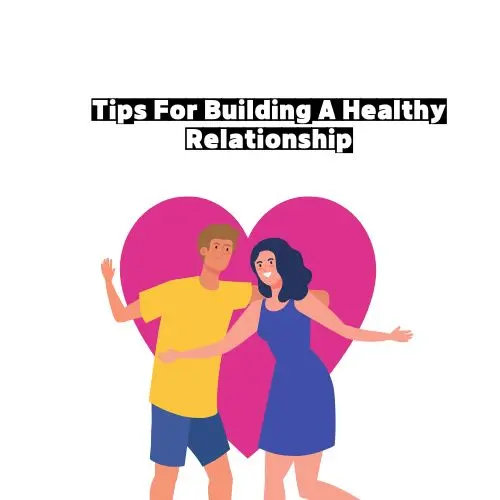Opening Thoughts
In today’s world, individuals schedule their Biz and personal lives according to the types of relations; that they have developed. Nevertheless, constructive conversation with family, friends, and/or co-workers is natural, leads to happiness, reduces stress, and is good for health. The knowledge that is wanted and needed in cultivating healthy relationships is also examined, and relevant suggestions from the study are provided.
Insights and Statistics
- Marriage and Divorce: About half of all marriages end in divorce, meaning that healthy marriages should be promoted.
- Communication Issues: From the work of the American Psychological Association, the study that was done on relationship issues showed that communication was the major cause of relationship problems.
- Longevity: The research has indicated that if a human is connected in life, they are fifty per cent more likely to live longer than people who hardly or never have acquaintances.
- Loneliness Epidemic: Pew Research Centre has pointed out that 33% of adults very often experience loneliness. Hence, the longing for a deeper connection than simple dating relations has never been as urgent.
What Does It Take to Have a Healthy Relationship?

Healthy relationships are built on key principles such as mutual respect, trust, honesty, and emotional support. Whether with a partner, family member, friend, or colleague, these qualities remain universal.
Characteristics of Healthy Relationships:
- Communication: The principle of effective relations is the essence of being able to speak or not speak, with or without any disguise. This, to a very large extent, entails both verbal and non-verbal expression of emotions and understanding of emotions in self and others.
- Trust: Trust is built on the consistency and reliability of the one who inspires public trust.
- Respect: Treating equals with cordiality, permitting temporal change in intensity of feeling, and distance is equality in relationships.
- Support: Love and care make people get support and also improve relationships between partners.
- Conflict Resolution: In other words, conflict in a given relationship is inevitable, but love will endure to find a way of resolving all the conflicts.
Tactics for Developing Great Bonds
In order to attain a sustainable relationship, all the parties must make a deliberate effort. Here are proven strategies to foster meaningful connections:
1. Effective Communication
- Listen Actively: Show that you are listening through the use of face-to-face directions, using head nodes to confirm what the speaker is saying and recognizing the feelings behind the speech.
- Express Yourself Clearly: The possibility of using “I-feel statements” to describe the feelings of the subject without pointing fingers at anybody is useful.
- Non-Verbal Cues: Consider what could be done with a gesture, the fineness of the face, and the tone of passing on cognisant messages.
2. Invest Quality Time
- Prioritize Togetherness: Go for a stroll, for a meal, or spend the time always talking without stopping.
- Be Fully Present: They expect the devices to be out of sight, and you are paid to concentrate on each other to strengthen the bond nicely.
3. Set Boundaries
- Establish Limits: It is self-assertively useful to enforce and assert one’s own code of conduct and to preserve and recognise the right of others to the same.
4. Show Appreciation
- Express Gratitude: Give thanks to the people in your life for the effort they have displayed, and simply tell them thank you since we all know they are close to us.
- Celebrate Milestones: As a reward for this, no matter how much a team has done, it will feel that it has as done something it had strived to do.
5. Be Supportive
- Offer Encouragement: Acceptance is good, and so it is great to promote achievements/strengthening, and when there is downward/upward weakening, that is okay. You see, reliability creates confidence and deepens the bond between two or more individuals.
Ideas for Building Better Relationships

In a world of more superficial connections, a man and woman who learn to develop a deeper connection will be more fulfilled.
1. Share Experiences
- Try New Activities: You have a great friendship with your date, which is usually a result of going out to find interesting activities to do with him or her.
2. Be Vulnerable
- Open Up: The general perception of one’s own experience is trusted and intimate.
3. Engage in Deep Conversations
- Discuss Significant Topics: To move from the level of friendly contact, it is necessary to talk about values, beliefs, and goals.
4. Prioritize Emotional Intimacy
- Encourage Emotional Expression: Organize ways that can sometimes be utilised to express feelings to enhance understanding.
Proven Ways to Enhance Relationships
As is so often the case with other aspects of life, it starts with the cultivation of a relationship. Here are actionable tips for maintaining and enhancing your connections:
1. Seek Feedback
- Ask for Input: A good friend should now and then ask the friend in question how that friend thinks the two of them can improve their relations.
2. Manage Conflict Effectively
- Address Issues Promptly: Turning an argument into resentment can occur only when people are ageing, so it is always better to solve a conflict as soon as possible.
- Focus on Solutions: Do not apportion blame but rather go for what partnerships are all about; use such phrases as ‘’we’.
3. Maintain Individuality
- Encourage Independence: Cooperation is also valuable because the partners build up each other’s competencies and experiences.
Ways Of Maintaining Healthy Relationships

Once you’ve built a strong relationship, sustaining it requires ongoing commitment:
- Regular Check-Ins: (Rare and, when necessary, briefly) recall feelings and alterations that should be applied.
- Practice Patience: Learn the bitterness that is a part of every relationship because it is a reality of life.
- Invest in Growth: Practical in promoting both individual and group knowledge development.
Final Thoughts
There is no affection and, consequently, inexperienced abstention from love—or proper affection can incapacitate a man; while, as applicable to all that is involved by man’s existence, friendly relations cannot be achieved in a hurry: it takes an infinite amount of time and I effort. Hence, the models of communication, the boundary conditions and the model of the valley of help-making can be used and extended for interpersonal communication.
You must also note as a reminder that there are no contracts to be signed, but they are just programs that take some time before they are concluded. If you maintain these strategies and tips and follow everything this article provides, you will build those relations that improve your work and personal lives. Look at current relationships in order that current difficulties can turn into a pleasure in the future.


Very interesting.
thanks for your commitment